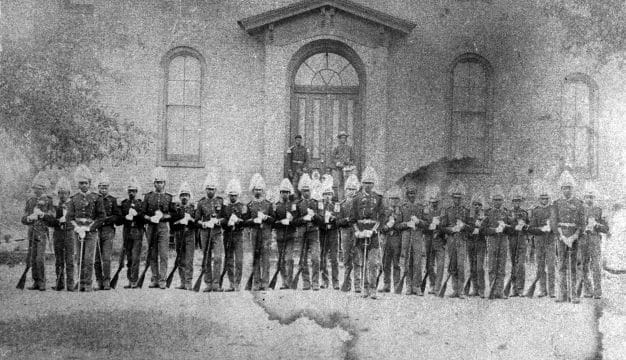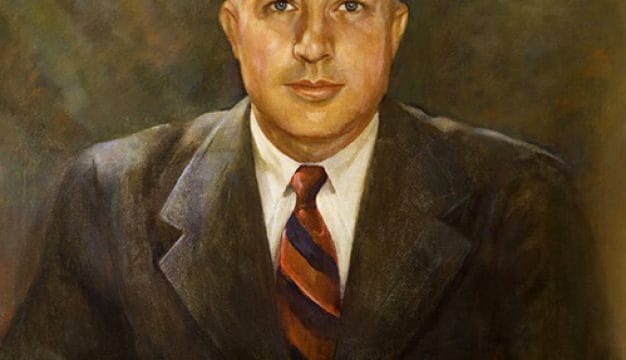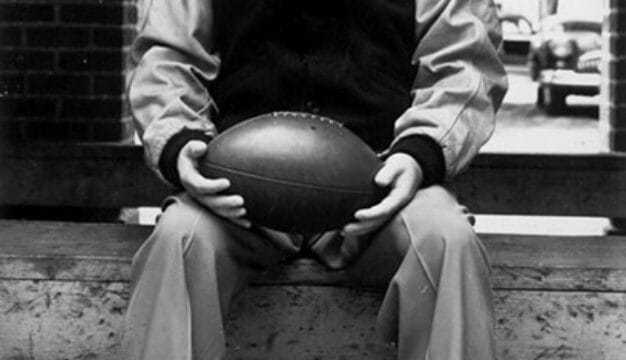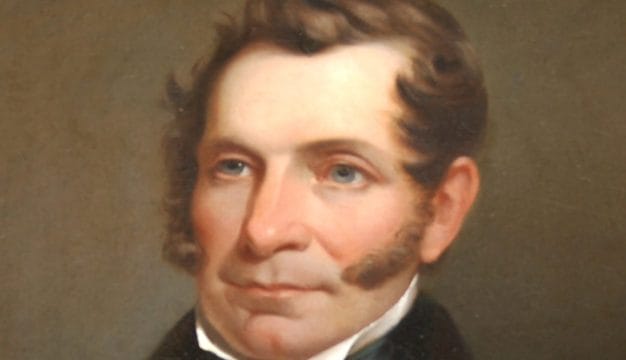Henry Chambers
Henry H. Chambers (1790-1826) was a physician, planter, and politician allied with the Huntsville-based group of planters and merchants known as the Broad River Group. Elected to the U.S. senate in 1825, Chambers never took his seat, dying at his Virginia birthplace en route.
Chambers was born on October 1, 1790, in Lunenburg County, Virginia, to Edward and Martha Cousins Chambers, the third of six children. Financially well-off (the 1810 census lists the family as owning 77 slaves), his parents sent him to William and Mary College and the University of Pennsylvania, where he earned a medical degree. About 1812, he moved to Madison County and joined Gen. Andrew Jackson’s staff as a surgeon during the Creek War of 1813-14.
In Huntsville, Chambers allied himself politically with LeRoy Pope, John Williams Walker, and others of the Broad River Group. Chambers became one of the wealthiest men in Madison County. As a delegate to the 1819 constitutional convention, he served on the Committee of Fifteen, which was charged with drafting a proposed constitution. Only incidental changes were made in the document after it was presented to the delegates.
In 1820, Chambers was elected to the Alabama House of Representatives. In 1821, political allies in the Broad River Group selected him to oppose Israel Pickens in the race for the office of governor. Pickens won by a margin of 9,616 to 7,129, benefitting from widespread resentment of the Broad River Group and its connection with banking interests during the financially difficult period following the Panic of 1819. The two adversaries squared off again in 1823, with Pickens winning by a margin of 6,942 to 4,604.
As the Broad River Group declined in power, Chambers sought to broaden his political base by serving as an elector for Andrew Jackson in the presidential election of 1824. This strategy proved effective, and in 1825 he defeated incumbent William Kelly in a close vote by the Alabama legislature for a seat in the U.S. Senate.
Chambers was never to take his seat, however. He fell ill at his childhood home in Kenbridge, Virginia, on the way to Washington for the opening session of the twenty-seventh Congress. He died there on February 24, 1826, and was buried in the Chambers family cemetery. Although records are sparse, Chambers apparently was survived by two sons and a daughter; one, Henry Cousins Chambers, served in the Confederate Congress from Mississippi. The Alabama state legislature honored Henry H. Chambers on December 18, 1832, by establishing Chambers County in his name.



